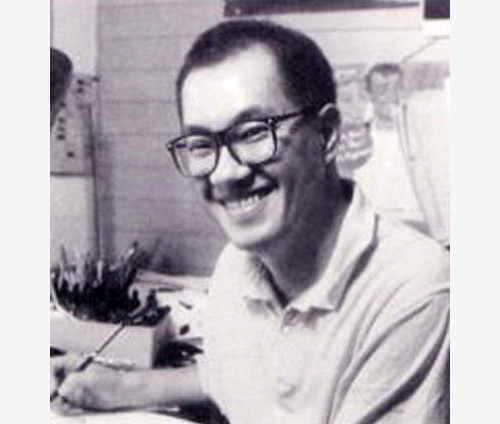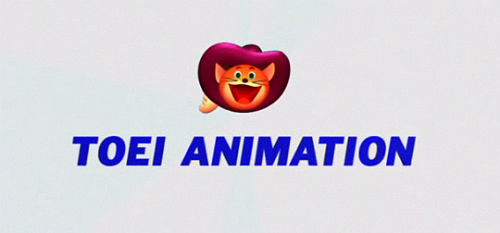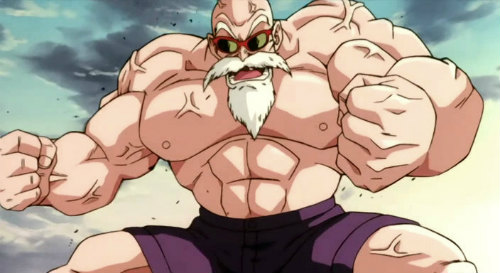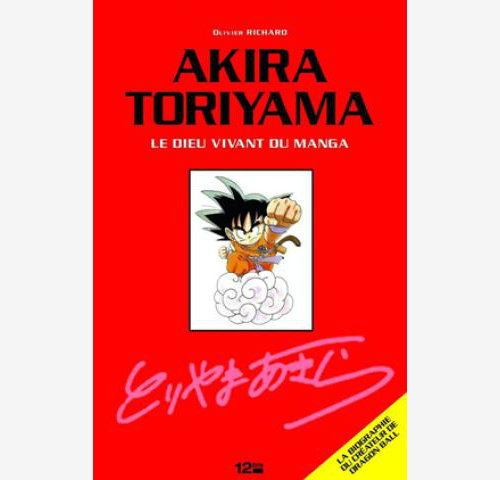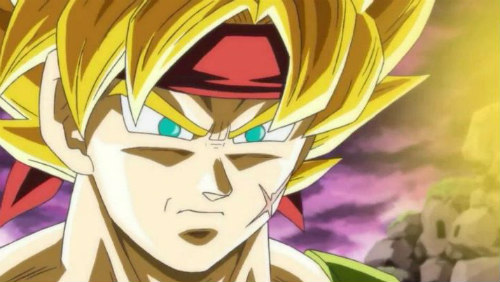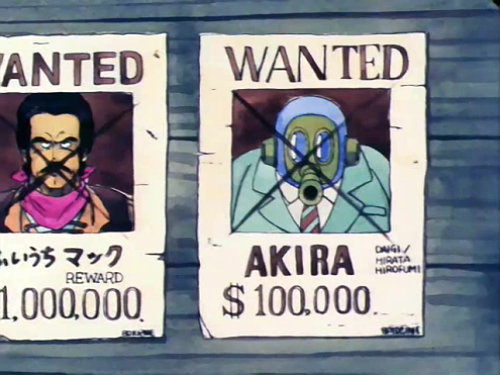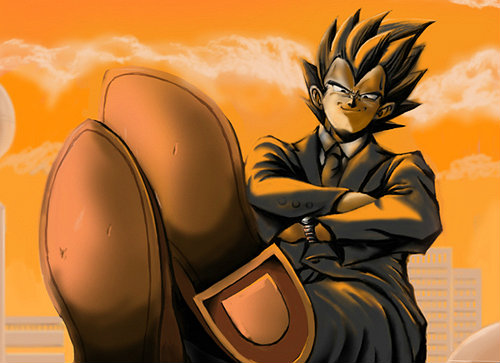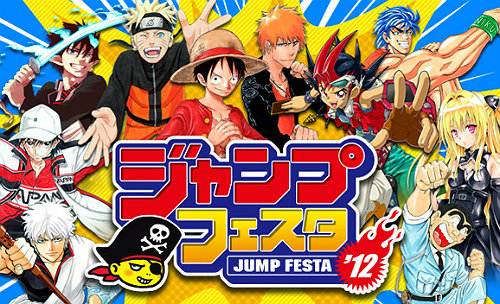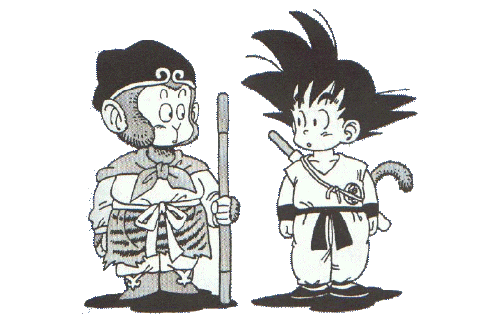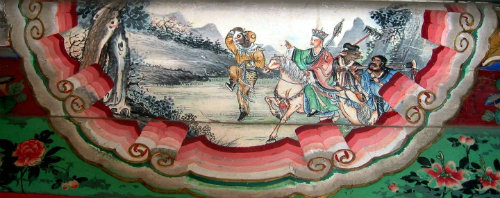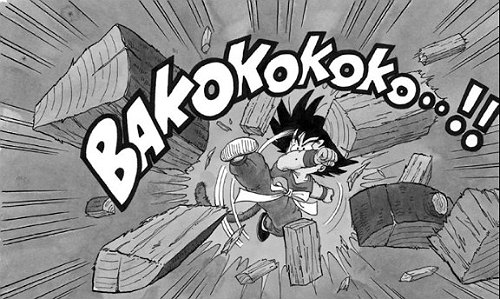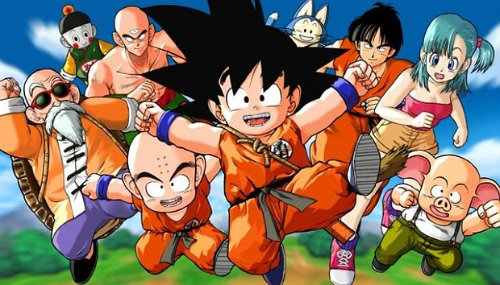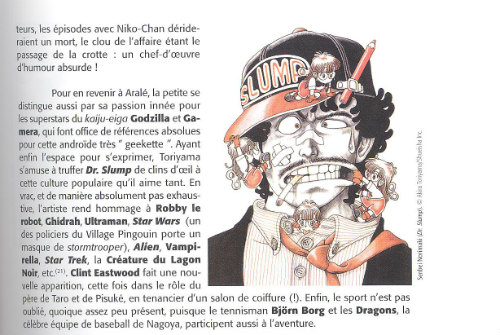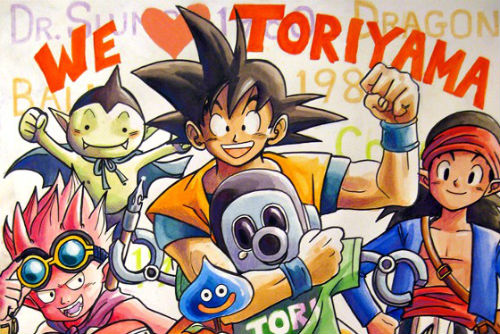Interview with Olivier Richard – Author of Akira Toriyama Book – Part 2
Welcome back to Part 2 of The Dao of Dragon Ball interview with Olivier Richard, the French author of Akira Toriyama – The Master of Manga.
In Part 1 Olivier and I discussed the French comic scene, his career of broadcasting Dragon Ball in France, and his personal comic book interests.
Today you’ll discover why Olivier chose to write about Akira Toriyama, hear what it’s like to collaborate with Shueisha, learn how he conducted interviews in Japan, and understand why Akira Toriyama truly is a master of manga!
Will there be an English translation? Does Olivier have insights into Toriyama’s personality? Read the rest of our discussion to find out!
Why Write About Akira Toriyama?
DEREK: Why out of all the shonen manga authors did you choose to write about Akira Toriyama? Are you a fan of Toriyama’s work, or do you just find him to be a fascinating figure?
OLIVIER: I chose to write about Toriyama because I have been following his work for more than 20 years, and I think he is one of the most interesting mangaka, because he’s very popular, because I also like his work, and because I think he produced something very interesting.
This is because Toriyama’s manga is very Japanese, but he is inspired by western movies and comic books. So in the end you have something that is very unique.
Toriyama belongs to the shonen genre. He’s one of the main founders of the shonen genre. But he’s beyond that. So I thought he was very interesting.
And the other reason was that I was looking for information about his latest works, and it’s difficult to find good information. You have to go on the internet. Some blogs are good, others are not. So I said to myself, “Okay, I’m going to see if there’s a book about him. After all, the man has sold around 250 million books.”
And I found there was no book. I was surprised. I decided to write a book about Toriyama so that people who are looking for information will have all of it compiled in one book, so it will be easier for them [laughter].
DEREK: Absolutely. Why do you think that despite his enormous success, nobody had written a book about Toriyama? Why did it take such a long time for him to be recognized in such a way?
OLIVIER: Before mine there were two Japanese books. Akira Toriyama: The World, the art book, published in 1990, and the exhibition catalog.
But I think so far no [biographical] books have been published because Shueisha, the publisher, is very careful, and they don’t want material to go out without approval. And people are afraid to ask for permission.
Collaborating with Shueisha and Toei
OLIVIER: Since I had worked with Toei and purchased Dragon Ball and One Piece, and also worked with people who published Japanese manga, I was aware of the way they think. They want you to behave. So I sent a request for materials and interviews.
But they did say okay you can publish some pictures. So later I sent a letter explaining what I wanted to do, why I wanted to write about him, and what the content would contain, the summary. Also a sum up of what I was going to say about Toriyama. I sent my request and waited for a long time before getting the approval to publish the pictures.
All of this before I knew it was possible to do the book. That’s how it happened.
DEREK: So you didn’t start writing until you received approval from Toei and Shueisha?
OLIVIER: No, no. I had already written the detailed summary, and I knew what I was going to write because I had followed his work for 20 years. I had detailed the contents. And I had traveled to China and taken pictures of Sun Wukong. I had almost everything I needed to do the book. But I chose to wait for approval, because it would have been terrible if I would have written a book and wouldn’t have been able to publish it.
DEREK: Yeah, definitely. Were you living in France when you wrote the book, or did you go to Japan as well?
OLIVIER: I was living in France, but I also went to Japan to interview people. Most of the people I interviewed were in Japan. The only Japanese person I met with in France was Shiro Sagisu, because he sometimes lives in Paris.
DEREK: Right, in the back of the book you have interviews with a lot of notable people in the industry. How did you choose these people to interview?
OLIVIER: First, I asked Toei for three people, but two of them were unavailable. The one I have is the only one who was available during my visit to Japan. The idea was to interview as many people in touch with Toriyama as possible.
For journalists, I wanted it to be three or four people. I work with a French publisher who has a correspondent in Tokyo, working in the manga business for almost 30 years. I told them I needed to get in touch with people who worked with Toriyama, so they suggested that I meet these people. For example, Mister Oshiguchi from Manga No Mori, I visited his book store in Shinjuku.
For the outsider professionals, it’s because I sent requests to their companies. Most people were unavailable or didn’t want to speak, you know? But I asked. It’s a request. You ask for 10 people and you never get 10 people, but even if you only have 3 or 4, it’s good because they are there.
DEREK: Do you speak Japanese, or did you need a translator for the interviews?
OLIVIER: I needed a translator. I’m only able to say survival phrases in Japanese, like, “A Japanese beer, please!”
DEREK: While we’re on the subject of publishing, did you have to get the final version approved by Shueisha, and if so, did they change anything in your book before it was published?
OLIVIER: No, they were very open minded. Because I sent a precise list of contents they didn’t ask for the definitive version. I know sometimes they ask for the final.
Toei asked to see the book, so I went to Toei in Paris because they wanted to check the copyright. But it was okay. Usually, if you know you’ll have to see people, it’s okay.
Of course if you expect the process to be at your pace it could be frustrating. If you know the Japanese, you have to be patient, because that’s the way they work, and then everything will go smoothly.
The Master of Manga?
DEREK: So let me ask you, where did the title The Master of Manga originate?
OLIVIER: Oh, the title? Because the Shueisha people, when they speak of Toriyama, they say Toriyama-sensei. And sensei means master, so I thought, okay, Master of Manga. I thought it was a good title because it is what he’s called by his colleagues.
DEREK: Ah, I see. What are your thoughts on him being a real master? After your book came out, some English speaking fans have now questioned whether Toriyama can really be considered a “master,” given his tendency to make things up as he goes along, forgetting about his characters and so on.
OLIVIER: Yeah, of course I understand their point of view, but to me he is a true master. The first master is Osamu Tezuka, but Toriyama is a master because his work is very huge and very good.
DEREK: When I first heard about your book and went on the internet to find more information, I saw the title said “Akira Toriyama: The Living God of Manga.” Are you familiar with that? Was that an alternative title or something else?
OLIVIER: Yes, I’m familiar with it. It was the working title. Obviously it wasn’t supposed to be released, [laughter], but it was, so, okay.
DEREK: I saw a picture of it, the book cover.
OLIVIER: Yeah, because the first cover we made bore this title, and it was given to commercials, you know, who are going to see it in libraries before the book is released, to explain to bookstores how beneficial it would be for them to take the book, and so we made this cover for them, and unfortunately this cover went out on the internet. It’s not a big problem, of course.
You could say it was the first title, but it was only a working title.
DEREK: Okay, so you changed it to match more of the Japanese respect for Toriyama. You changed it from Living God to Master, is that the idea?
OLIVIER: Yeah, I changed it because when they asked me for a title during the meeting for the commercials, we didn’t have one.
DEREK: I see. I understand now.
Making the Book
DEREK: So, what was the book making process like? How long did it take you to write the book, and were there any difficulties you had to overcome?
OLIVIER: I started to work on it in late 2009, and it was released in early November, 2011. In the mean time I worked on other projects. So it’s difficult to say if it was 6 months or 1 year. Of course by the end I was only working on this, to write and check the pictures with the publisher. It was quite a long process. And you don’t only work half-time on it.
The difficulty is always the same for a book, no matter the topic… you have to wait for people to reply to you. So you wait and you are hoping they say yes, and sometimes you can’t work until you have their answers. That’s the most difficult part of the job for me.
DEREK: There are a lot of American fans who would love to read your book, but they don’t speak French. Do you have any plans for translations of your book, perhaps into English? And if so, when can they be expected?
OLIVIER:
DEREK: Oh, no way, really?
OLIVIER: Yeah, really. Of course we asked for the authorization for the book to be published outside the French speaking market, but right now it’s not possible. Maybe later. But for now, you have to tell your American fans to learn French. [laughter]
DEREK: Okay, well they’re going to be disappointed to hear that, but French is a good language to learn, so maybe this will inspire them to do so.
OLIVIER: I hope! [laughter]
Insights into Toriyama
DEREK: If you were to write a second edition of the book, what would you like to include?
OLIVIER: A Toriyama interview.
DEREK: If you could interview Toriyama, what would you ask him?
OLIVIER: Oh, many things, many questions. Because he is such a shy man, and he almost never speaks, you have too many questions. The list would be too long. Many things about the way he did what he did.
As many as you would have, I guess. I’m sure you would have lots of questions to ask him. Same with me.
DEREK: Well if you were to have coffee with him, and had maybe 10 minutes, what would be your most important question?
OLIVIER:
And if I had to ask him about the past… boy, I would have so many questions, I don’t know. Sorry.
DEREK: No, I completely understand. I would have a hard time coming up with some questions as well.
You mentioned that Toriyama is known as being shy and reclusive. Why do you think that is?
And during your research were you able to find any insights into Toriyama’s private life or information that is not publicly available or that fans might be curious to know about?
OLIVIER: No, because I put everything into the book.
Of course I would be glad to ask him if he gets drinks once a week with his publishers, or whatever. But I think he wouldn’t want to say. It’s not his character.
DEREK: He has been enormously successful though. People have compared Toriyama’s success in manga with Steven Spielberg’s success in directing.
Do you know how well Toriyama has done financially? Some fans are curious to know if he received the same wealth that his publishers did for all of his hard work.
OLIVIER: I don’t have any figures, but I think he’s okay. [laughter]. Because you see, he owns the copyrights of the series.
DEREK: It’s not owned by Shueisha?
OLIVIER: As far as I know, it seems both Toriyama (or Bird Studios) and Shueisha own the copyrights. because when you look in the books it says, “copyright Bird Studios,” and “copyright Toriyama,” not just “copyright Shueisha.”
It’s not like the old Marvel comics or DC comics. For example, the artists or writers, for a long time, completely sold their works to the companies. When the company made a movie, they usually didn’t get money. Now in the last 15 or 10 years, it has changed.
But the Japanese artists, they usually kept their rights. This was not the case for most of the Americans.
DEREK: Yeah, I bet he’s doing okay. [laughter]
Toriyama’s Influence Today
DEREK: How would you describe Akira Toriyama’s influence on the world?
OLIVIER: I think it’s overwhelming. Thanks to him, many kids in America or Europe, opened up to Japanese and Asian culture.
In France, when the animated series was broadcast for the first time, there were only 5 or 6 TV stations, and only 3 broadcast programs for kids and teenagers.
DEREK: What time period was that?
OLIVIER: Between 1990 to 1996.
DEREK: So you guys got it before we did?
OLIVIER: Yeah, yeah, of course, yeah. The big question in the 90’s, the big thing… Dragon Ball Z was very huge in Europe, Italy and Spain… Everybody is aware of the American market, it’s very difficult to enter.
Because usually, at the time you didn’t get many anime series, and some of them which worked well in Europe, like Saint Seiya, didn’t do that well in America. But even in America, Dragon Ball succeeded.
But of course we got it before you because we had the tradition since ‘78 of the Japanese series on the French networks.
DEREK: That is very fascinating. When it came to America they made a lot of changes to the show, to Americanize it and make it appeal to the American audience. Did they do the same thing in France to make it appeal to the French?
OLIVIER: No, they kept the program.
However, sometimes in Dragon Ball Z it’s very violent. The show was broadcast on Wednesday mornings, and kids in France, the small kids, don’t go to school on Wednesdays. Some of the fights are very bloody, so the French version, the first one, was cut. Most of the gory scenes.
And we added a stupid French song in the opening credits. Terrible song.
DEREK: Yeah, I’ve seen it on YouTube.
http://www.youtube.com/watch?v=dZ1NcxAZUYk
OLIVIER: Awful song. [laughter]
DEREK: Well, what are your thoughts about the American version of DBZ?
OLIVIER: I think it’s American. It’s what you could expect from America. [laughter]
But at least they see the show, you know? They see it on TV and if they really like it they will buy the DVD’s and the original version. It’s better to have it that way than not have it.
DEREK: Did you see Dragon Ball Evolution? And what did you think?
DEREK: Why do you think it turned out the way that it did?
OLIVIER: I don’t know, because the studio wanted to make money, and they’re happy with it, you know? I think it’s bad, but I don’t know, maybe it turned out that way because the studio felt that it was such a big license that it was simply enough to put Dragon Ball on a poster and attract people to the theaters. It happened that way, unfortunately.
And the Japanese had a contract, and I guess somebody sent his [Toriyama’s] comments, but when you have such a bad, bad, bad movie, what can you do?
Even the poor Stephen Chow, who had directed in Crazy Kung Fu some very good Dragon Ball type scenes, wasn’t listened to by the studio execs, because I think it’s a cultural… I don’t know, I don’t know.
I think when James Cameron shoots his GUNNM version, it will be something that is very different and very good, but which will respect the original manga.
DEREK: Right, and that’s a shame. I would agree with you.
I have a question from an American Dragon Ball fan. He wants to know, from your perspective, which modern anime series holds the title of Dragon Ball’s successor?
OLIVIER: In terms of success, it’s obviously One Piece. One Piece is bigger than Dragon Ball now, in terms of sales.
DEREK: What about in terms of spirit?
OLIVIER: Naruto, One Piece, maybe Fairy Tale. Lots of, almost every shonen manga, has pieces of Dragon Ball in it.
Dragon Ball and Chinese Culture
DEREK: You said that you went to China to get pictures of Sun Wukong. Are you familiar with the Chinese legends that inspired Dragon Ball.
OLIVIER: Yes, yes, yes, of course, yes. I’m kind of familiar with the religion, and wherever you go in China there are places where the Monk and Monkey King are said to have passed. You have statues and wall paintings. And so wherever you travel in China, even in North China, you might encounter some art.
DEREK: Yeah, I traveled to Beijing and Xi’An, and they had the White Horse Temple there, and they also had statues of the Monkey King and Tang Monk.
OLIVIER: Yes, and in Beijing’s Summer Palace there are paintings on the walls of Sun Wukong.
DEREK: Yep, yep, I actually saw that in person. Speaking of which, has Dragon Ball been successful in China?
OLIVIER: Yeah, it’s very popular! But you know in China there are many bootlegs. So, many people read unofficial comics.
And we also had lots of Cardass produced in Hong Kong. Many people had to inspect if the cards were Japanese or Chinese, because they wanted to have the official products.
DEREK: Dragon Ball was inspired by these Chinese legends, at least in the beginning, and those Chinese legends are very much involved in religion, spirituality, legends and fables and things. Do you see any of those aspects in Dragon Ball?
OLIVIER: Yes. It’s very subtle, but when you read it, not every time of course, but in many episodes, there are references to the Japanese legends or Asian legends. So it’s like the watermark, it’s like the background of the series.
Toriyama’s Talent
DEREK: You mentioned that Dragon Ball has Japanese, Asian components to it, but was also influenced by American cinema in Hollywood, and also by Hong Kong, Jackie Chan and Kung Fu. The result could have simply been a mish-mash of a bunch of different things, but it worked out really, really well, and it’s extremely successful. Why do you think that is?
OLIVIER:
Of course he is influenced by Terminator 2, Chinese movies, many things. And in the end you have something which is very unique, even though you could spot some [references], or identify things that inspired him.
Most of the bigger artists are like this. If you look at Star Wars, the first ones at least, it’s heavily influenced by the old Flash Gordon. Speaking of designs, there are many starships, or the Stormtrooper’s uniforms, you could say they were influenced by the science fiction magazines of the mid ‘70’s, especially Heavy Metal. You could track George Lucas’ influence.
There are also influences in Star Wars from the Indian legends, like the Ramayana. You could say that the Padawana inspired the name, he calls (the young Jedi disciples), one of the two families of the Ramayana, you know.
Lots of big artists are inspired by many big things, and in the end it’s not a mish-mash, it’s something unique.
For example, if you look at Avatar, when you watch Avatar, many people are reminded of Princess Mononoke, from Miyazaki.
So for me it’s not a problem when you read Dragon Ball and you can identify what inspired Toriyama. It’s enjoyable because you can see how he took the werewolf, and many things from everywhere, to produce something that is unique and coherent.
DEREK: Yeah, I agree. I think that is a big reason why it was so successful. I also think it just appeals to people’s… you know we grow up hearing about legends, like you said about werewolf’s, and vampires and witches, and monsters, and heroes who grow up to defeat these monsters. And that has been the case for thousands of years, and even today. So I think there is something in human nature, especially as kids, that draws us, we’re attracted to that, and Toriyama manages to depict all of that, while at the same time being funny and action packed, and he managed to find a worldwide audience. It’s really incredible.
OLIVIER: Yeah, and everybody speaks of his talent, saying he is a talented artist, but he’s also a talented writer, a very gifted writer.
When you start to read the story, if you dig those kinds of universes, you don’t want it to end, it’s very good, like a good serial, very incredible, it takes you by your neck and you can’t stop, you know?
Of course, in episodes 14 to 72 it starts to be tournaments, fighting, fighting, fighting, if you’re not interested in fighting, okay, you’ll start to feel it’s repetitive.
But if you are interested in action and sci-fi, it’s incredibly rich. Especially because it’s written and drawn by the same person. When you look at the American comics, which I like a lot, when you look at 10 years of Spiderman, it’s not that good.
DEREK: Oh, is that because there are different people involved?
OLIVIER: No, it’s because they don’t have Toriyama!
DEREK: Wow, that’s a big statement.
OLIVIER: Yeah, speaking of comic books, of course.
DEREK: So you have a lot of respect for manga and anime.
OLIVIER: Yes.
Dragon Ball is for Everyone
DEREK: Some people might say manga is just for kids. What do you think?
OLIVIER: Japanese comic books are not like in some countries, because they are aimed at different targets. Japanese manga could be for kids, it could be only for adults. It’s very rich.
Still, in France we still have people saying that it’s industrially produced by workshops of slaves who want to invade the western civilization with their low quality products. Those people, thankfully, their numbers are diminishing and everybody now appreciates good comic books, like graphic novels, the best American comics, or European comic books.
Like I said, even the government, who is not known for being avante garde in speaking of comics, gave a medal to Otomo Katsuhiro.
DEREK: That does say a lot.
Your book covers Toriyama’s entire life, from his childhood up until now. Dragon Ball was obviously his most successful, but Dr. Slump made his career, at least that’s what gave him his initial success after getting a few manga published in Weekly Shonen Jump and things like that. What do you think is his best work?
OLIVIER: I like Dr. Slump and also Dragon Ball because they are very different. But it’s difficult to say because they are different genres. One is a comedy and one is an action fantasy. They are both good, different styles and genres.
Derek: What do you think Dragon Ball is? What is the essence of Dragon Ball, if you could describe it? It’s a huge epic series so it’s hard to describe succinctly, but what it is that people are attracted to, why do they like it so much?
OLIVIER: Most people like it because they can identify with a hero, they grew up with a hero. One of the peculiarities of the series is that in the end the hero is like a teenager. Not only a teenager, but he grows up, gets married, has kids, and you grew up with the series. So it’s very… you can relate to the hero if you met the series when it was released, you grew up with the series.
And if you meet the series later, it’s such a classic hero, very naïve, very pure, he’s irresistible. If you are sensitive to action, heroes, and the classic values of good versus evil, it’s like a synthesis of every good thing.
DEREK: It appeals to who we are as human beings.
OLIVIER: Yes, yes, that’s it!
DEREK: Well, that’s all my questions. Thank you very much for your time, I know that was a long interview. I could talk about Dragon Ball all day!
OLIVIER: Thank you very much for the interview, and if we have an English version that comes out, I’ll let you know. The approval was only for the French speaking markets. I’m sorry for the English speaking readers! I’ll let you know anyway if something happens with the book, if there is a new edition with more information. And keep me informed with what’s going on with your book too.
DEREK: Yeah, absolutely, and maybe you can interview me one day for the French speaking audience.
OLIVIER: Haha, you bet!
Concluding Thoughts
What a great interview! As you can see from our discussion, Olivier made a big impact in France by bringing Dragon Ball and other shonen titles to television, and he clearly knows his stuff about Akira Toriyama.
That’s a shame there won’t be an English translation though. What do you guys think about this? Will you pick up the French version?
And do you believe that Toriyama should be called a master? Is he the living version of Osamu Tezuka?
' . $comment->comment_content . '
'; } } else { echo 'No comments found.'; }